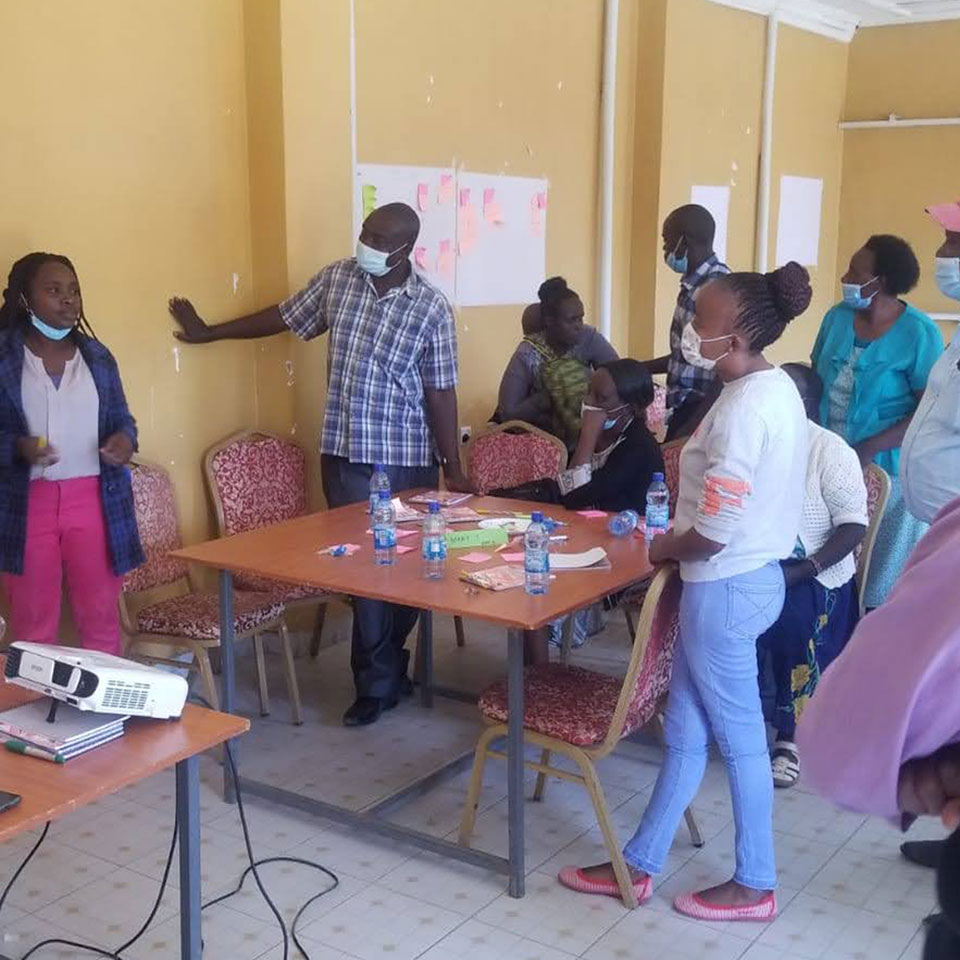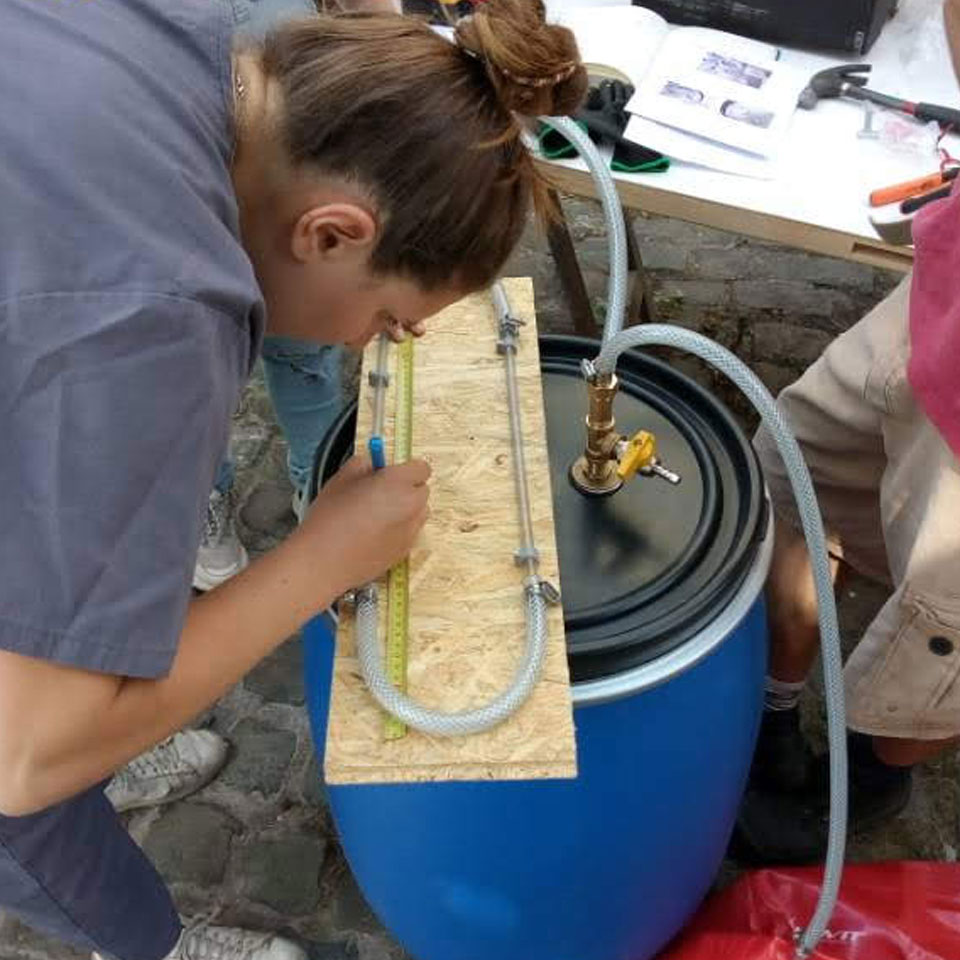Dr Marianna Joy Coulentianos
Lecturer in Responsible Design – Design and Creative Arts
Dr Marianna Joy Coulentianos is passionate about socially responsible design and an advocate for the positive impacts of ethical design practices. She is the co-creator of several equitable and sustainable initiatives with communities worldwide, and her current work explores low-tech solutions to the challenges posed by the climate emergency and their important role in reducing our carbon footprint to safeguard the planet and our future on it.
Socially responsible design for a sustainable, more equitable future
Marianna’s research philosophy aligns with that of the post-growth movement, recognising that there are “limits to economic, population and consumption growth” and there is a point at which “further growth produces negative outcomes”. She is also a champion for low-tech solutions that are more widely acceptable, affordable and environmentally sustainable than the majority of high-tech options. Informed by these allied principles, her work offers an alternative approach to ensuring long-term ecological, economic and social justice.
I am a mechanical engineer turned design researcher. My work explores socially engaged design processes for building equitable and sustainable products and services.
A cornerstone of my design philosophy is the combination of stakeholder engagement and the use of prototypes to break down cultural barriers between me – as a designer – and stakeholders so that we can better understand each other and work together with greater efficacy.
Over the years, I’ve worked on projects in France, Ghana, India, USA, Thailand, Kenya and Tanzania – focusing on social innovation, medical devices and health technologies, women’s empowerment, the energy transition, and environmental sustainability.
The increasing complexity of the climate emergency – and the many difficulties of implementing impactful solutions at scale – highlights our need to better understand the role of design in a just and equitable transition to a sustainable future.
My current research includes three projects in this area.

On the one hand, I’m involved in the Service Design for Modern Energy Cooking Services (SD4MECS) project. A transdisciplinary team, we’re exploring energy demand reduction and modern energy cooking innovations in the Global South while addressing a range of issues around improved health and wellbeing, better quality of life and opportunities for the people living in the communities we work with.
A central element of this project’s approach is the use of Living Labs which involve end-users in the design process, allowing them to use and evaluate the product or service in their day-to-day life over an extended timeframe; crucially, supporting the development of more culturally informed and desirable outcomes.
I’m also part of a transdisciplinary team investigating the barriers and opportunities for retrofit measures that could ensure UK residential properties are energy efficient and low carbon.
We’re looking at how data and modelling are used, at national scale, to decide on retrofit interventions, highlighting key issues and limitations with current approaches. We’re also exploring occupant behaviour which can affect people’s willingness to undertake retrofit. Alongside this, we’re conducting a stakeholder mapping exercise which will inform the next phase of the project.
Meanwhile, I’m exploring low-tech solutions to help small-and-medium agricultural enterprises (SMAEs) meet carbon emission reduction targets. Although many want to play a positive part, they face a range of financial and informational barriers to adopting the necessary sustainable practices.
I hope that my own passion for ethical and responsible design will infuse my teaching and inspire the next generation of designers and engineers.

My research-by-design approach will help to build an understanding of the potential applications of low-techs in the agribusiness transition, spanning waste processing (such as low-tech biodigesters, pyrolizers and composting), farm operations (including low-tech rams and energy supply) – and could help diversify income streams.
I’ll also be developing a local Living Lab, comprising a series of real-world field studies prototyping low-tech services. I am building connections locally in Leicestershire, home to several organic farms, where I hope to implement this research.
Working with the farmers and neighbouring community stakeholders, we’ll be leveraging rapid prototyping and testing to explore how SMAEs can transition to net zero practices through the adoption of low-tech-based services while maintaining financial stability and connecting with their surrounding communities.
I’m very excited about this work – and proud to be addressing some of the challenges posed by the climate emergency in very practical and holistic ways.
My research journey
Pursuing engineering has given me an amazing insight into how the world is built. But a key piece of this gigantic and fascinating puzzle has always been missing for me – why is the world built the way it is?
The discipline of design is helping me to address and answer that question.
My research journey began with a Masters in Product Design and Innovation at the Arts et Métiers Paristech. My thesis focused on "Good practices in the digital transformation of large retail companies: User-Centered Design".
In 2016, I moved to the University of Michigan to pursue a PhD in Design Science. I diversified my studies to complete a Masters in Applied Economics (May 2020) while continuing my education in design, achieving my PhD later the same year. My thesis explored “The use of prototypes to engage stakeholders in design for low- and middle-income countries”.
Alongside my studies, I’ve been involved with several initiatives and organisations including as Senior Facilitator at the Center for Socially Engaged Design (University of Michigan), Facilitator with Climate Fresk, and Research Consultant with the Post Growth Institute. And, over the years, I’ve also been an active volunteer – most recently supporting vulnerable members of the community during the COVID-19 pandemic and organising climate action during COP26.
I’m a strong believer that my research and teaching should align with my ethical and political convictions. For me, volunteering and engaging with industry in various ways really ground my research in the real world and create valuable activist research.
I joined Loughborough’s Design School in March 2021 as a Research Associate with the SD4MECS project (one element of STEER’s diverse activity) and was promoted to my current role, Lecturer in Responsible Design, just 12 months later.
Looking forward, my ambition is to help give the Low-Tech Movement real momentum, and ensure a just transition towards a sustainable future for everyone – through prototyping and co-creating with stakeholders. I also see my work with STEER continuing via collaborations on the MECS programme and the ongoing development of Living Labs with Country Partners in East Africa.
Long term, I want to continue my research within the fields of design for climate justice, decolonial design, and design in cross-cultural settings. It’s important to me that my work helps to enhance the lives of disenfranchised people.
Meanwhile, I want to grow as a teacher and am keen to develop an interdisciplinary curriculum that allows students from different subjects to collaborate on responsible design projects. I hope that my own passion for ethical and responsible design will infuse my teaching and inspire the next generation of designers and engineers.
